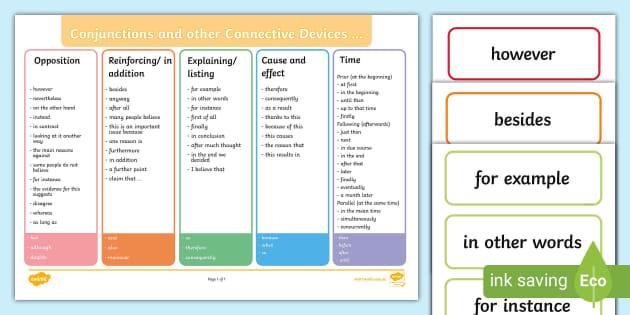Endurance and Obstacles: An Updated Overview of TunisiaŌĆÖs Civil Society Landscape
Once hailed as a symbol of democratic progress following the Arab Spring, TunisiaŌĆÖs civil society currently faces a complex environment shaped by political turmoil and economic challenges. The vibrant coalition of NGOs, grassroots movements, and advocacy groups that once embodied optimism is now confronted with increasing governmental restrictions, diminishing financial resources, and a climate of fear that discourages active citizen involvement. This transformation reflects wider regional trends while raising urgent questions about the sustainability of democracy and human rights protections in North Africa.
The Effects of Political Volatility on Civic Engagement
The surge in authoritarian governance has significantly eroded the freedoms Tunisian civil society enjoyed after the revolution. Crackdowns on public demonstrations, tightened controls over freedom of expression, and enhanced surveillance have become commonplace tactics to suppress dissent. Legal instruments are frequently employed to intimidate activists and curtail their operations.
These developments have created several formidable barriers for civic actors in Tunisia:
| Challenge | Explanation |
|---|---|
| Governmental Repression | Restrictive laws limiting protests combined with aggressive law enforcement hinder activism efforts. |
| Funding Shortfalls | A decline in international aid coupled with difficulties securing domestic donations strains project viability. |
| Skepticism Within Movements | Concerns about infiltration or retaliation foster mistrust among activists themselves. |
| Legal Intimidation | Court proceedings targeting NGO leaders destabilize organizational continuity. |
Tackling Economic Hardships Amid Political Constraints
TunisiaŌĆÖs persistent economic woes further complicate civil societyŌĆÖs ability to operate effectively. As unemployment remains elevatedŌĆöhovering near 15% overall with youth unemployment exceeding 30% according to recent 2024 dataŌĆöthe financial foundation for many civic projects is increasingly fragile. Inflationary pressures reduce disposable income within communities, limiting volunteer participation and local fundraising potential. These economic factors intensify the impact of restrictive policies that already impede freedoms such as assembly and speech.
Civic Education: A Catalyst for Renewed Public Involvement
A significant obstacle lies in widespread gaps in civic knowledge among parts of the population, which dampens enthusiasm for democratic engagement. To address this deficit, numerous organizations have initiated community-based educational programs designed to inform citizens about their democratic rights and responsibilitiesŌĆöefforts essential for restoring confidence between civil institutions and local populations alike.
Pioneering Strategies Bolstering Civil Society Resilience in Tunisia
Tunisian activists are innovating new approaches to maintain momentum despite mounting pressures:
- Energizing Community Participation: Engaging residents directly through neighborhood councils empowers individuals by giving them influence over decisions impacting their daily livesŌĆöa bottom-up approach fostering ownership at grassroots levels.
- Diversifying Digital Campaigns: Utilizing social media channels alongside encrypted messaging apps allows safer coordination among advocates while expanding outreach beyond traditional physical gatherings.
- Nurturing Leadership Capacities: Specialized training enhances skills such as strategic negotiation, conflict management, and campaign planning critical under restrictive conditions.
- Cultivating Cross-Sector Partnerships: Forming alliances between human rights defenders, environmental advocates, gender equality proponentsŌĆöand even private enterprisesŌĆöincreases collective leverage against repressive measures.
- Sustaining Community Engagement Through Culture: Hosting workshops paired with cultural events helps keep public interest alive despite prevailing fears or apathy toward political participation.
| Key Factors Influencing Civic Participation (2024) | Current Status | Impact on Civil Society |
|---|---|---|
| < strong >Political Climate< / strong > | Deepening ideological polarization across societal groups< / td > | Hinders unified mobilization efforts among diverse organizations< / td >
/ tr > |
| < strong >Economic Environment< / strong > | Sustained high unemployment & inflationary challenges < / td > | Reduces funding opportunities & volunteer engagement < / td >
/ tr > |
| < strong >Legal Restrictions & Policies < / strong > | Enforcement of stringent laws curbing assemblies & free speech | Limits operational autonomy for NGOs & activists& nbsp;<┬Ā/┬Āt d┬Ā>
</ t r┬Ā>
<t r>
<t d><s t rong>civic literacy levels</ s t rong></ t d>
<t d>lack o f widespread understanding o f democratic processes</ t d>
<t d&r gt;r educed citizen participation i n governance activities& lt ;/t d&r gt ;
</t r&r gt ;
</tbody&r gt ;
</table&r gt ;
The Crucial Contribution Of International Cooperation To Tunisian NGOsŌĆÖ SurvivalThe growing domestic obstacles facing Tunisian civil society have made global partnerships more vital than ever before. Support from foreign governments, international donors, and transnational advocacy networks provides essential funding streams alongside technical expertiseŌĆöand offers platforms where local issues gain international visibility.
A Vision Forward: Preserving Democratic Values Amidst Uncertainty┬Ā┬Ā
Tunisia’s post-revolution trajectory reveals both inspiring progressions along with substantial setbacks. As observers worldwide continue monitoring these developments closely, The enduring spirit animating activism serves as a potent reminder: |







